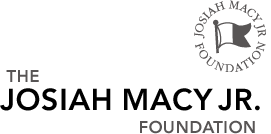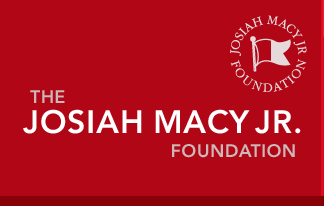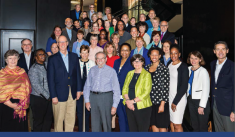Our Grantees
Across the Foundation’s priority areas, our grantees are working to improve the health of the public through innovative research and programs. The Foundation awards up to 40 grants on a rotating schedule each year.
Educating Federal Policy Makers on Health Professions Training & Workforce Issues
Since its founding in 1972, The National Health Policy Forum at The George Washington University has worked to improve health and health care delivery for all Americans through a more informed and knowledgeable policymaking process. The mission of the Forum is predicated on the assumption that providing unbiased information in a neutral environment and offering opportunities for dialogue and exchange among congressional and executive branch policymakers is beneficial to the policy process. In the absence of such information and opportunities, policymakers increasingly rely on lobbyists and self-interested advocates who often present information to advance their own positions.
The Forum’s core activities include various types of “off-the-record” meetings and small group sessions that allow congressional and executive branch decision makers to engage each other in frank discussions and problem-solve around issues of mutual concern. The Forum also offers an array of written products to its policy audience ranging from issue briefs to background papers to basic program descriptions. In keeping with the Forum’s commitment to nonpartisan analysis, written products do not propose recommendations, though they may talk generally to proposals under discussion. The Forum also conducts one to three site visits annually. Site visits allow congressional and executive branch staff to study market dynamics and observe, first hand, the impacts of federal policies on programs, individuals, and institutions in states and local communities.
Forum products are segmented by audience. Some meetings and written documents are designed for “new” Hill and executive branch staff just learning about federal health policies and programs; some are targeted to more seasoned participants who are responsible for specific programmatic and policy areas. Still other sessions, primarily small group, are structured to promote dialogue among senior-level committee staff and executive branch decision makers responsible for policy development. Staff of the congressional support agencies—Congressional Budget Office, the Congressional Research Service, the Government Accountability Office, and the Medicare Payment Advisory Commission (MedPAC)—are prime users as these are key and more permanent advisors to the often changing body of congressional staff, whether on professional committee staff or in personal offices. A new body has just been formed to advise on Medicaid policy (the Medicaid and CHIP Payment and Access Commission), and MACPAC staff will also play a key role in Forum activities.
The Forum is successful in these endeavors by maintaining a reputation for thoughtful, unbiased analysis; by working closely and maintaining good relationships with both majority and minority congressional staff; by developing its agenda based on the needs of its audience; by providing opportunities for discussion of difficult issues in an off-the-record environment; and by offering unique learning opportunities, such as site visits, unavailable from other sources.
The Forum plays a unique role in the Washington health policy community. Asked what distinguishes the Forum from other policy organizations in town, a Senate committee staffer recently wrote: “Because the Forum’s meetings are not open to the press, the presentations are generally more in depth and the discussions more frank. The Forum especially excels in making available individuals who are experts in their field, whether as practitioners, researchers, or administrators implementing policy at the State or local level, and [who] are willing to speak candidly when sharing their knowledge and recommendations.” Similarly, a senior executive at CMS responded that: “The distinction is the neutral environment with no press or public participation. This allows open and honest dialogue that I think can only happen through this forum. NHPF has been in existence for many years and has the respect of the health care community for providing a place for open discussion.”
Funding from the Macy Foundation will help underwrite and ensure the continuation of the Forum’s relatively recent programming on workforce issues and allow the Forum to focus more specifically on issues related to medical education. Equally important, it will allow the Forum to tap the Foundation’s expertise in a more systematic way and provide access to key peer leaders who are often critical in helping to shape future papers and/or discussions.




 11.13.18
11.13.18